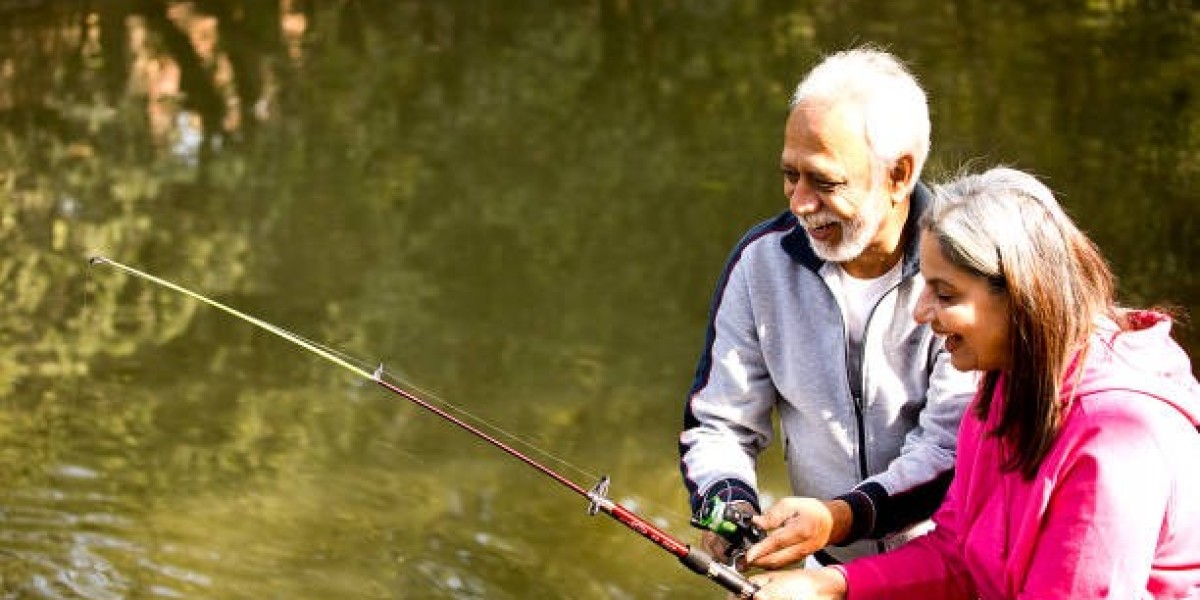Addiction is a pervasive and destructive force that affects millions of people across the United States, including in New Jersey. While addiction often begins as a personal struggle, it has widespread societal consequences, affecting families, communities, and the economy. However, in the face of this challenge, nonprofits across New Jersey have played a pivotal role in providing support, resources, and hope for those struggling with addiction.
These organizations not only address the immediate needs of individuals affected by addiction but also work on long-term prevention and recovery solutions. Their efforts have become a cornerstone in the fight against addiction in the state.
Accessing Affordable Mental Health Care in New Jersey
Finding therapists that accept NJ FamilyCare is a critical resource for individuals and families seeking accessible mental health services. NJ FamilyCare, New Jersey’s Medicaid program, provides coverage for therapy sessions, ensuring that cost is not a barrier to receiving quality care. Many nonprofits across the state collaborate with therapists and clinics that accept NJ FamilyCare, offering counseling for addiction, trauma, and other mental health challenges.
By partnering with these providers, nonprofits ensure that underserved populations receive the comprehensive support they need, creating a pathway to recovery and emotional well-being while addressing the interconnected challenges of addiction and mental health.
The Growing Addiction Crisis in New Jersey
New Jersey, like many other states, has been grappling with an increasing rate of addiction to substances like opioids, alcohol, and other drugs. The opioid epidemic, in particular, has ravaged communities, with thousands of residents succumbing to overdose deaths each year. While the state government has made strides in combating the crisis, including expanding access to naloxone and other harm reduction programs, nonprofits have stepped in to fill critical gaps.
Nonprofits play a vital role in tackling addiction because they often operate on the frontlines of the crisis, offering immediate and direct services to those in need. They are nimble, community-focused, and provide a range of resources that are often unavailable through traditional medical or governmental systems. Their efforts span across prevention, treatment, and recovery, working to break the cycle of addiction that affects individuals and their families.
The Role of Nonprofits in Addiction Prevention
Prevention is the first line of defense in the battle against addiction. Nonprofit organizations in New Jersey are active in educating the public about the risks of addiction and providing tools to prevent it. These efforts often target at-risk populations, such as youth, individuals in recovery, and those in underserved communities, providing education, skills development, and access to support systems before addiction takes root.
Community-Based Education and Outreach
Many nonprofits in New Jersey engage in community outreach programs that educate the public on the dangers of substance abuse. These initiatives often target schools, youth centers, and community organizations. They provide age-appropriate lessons about the dangers of drugs and alcohol, teaching young people healthy coping mechanisms, life skills, and decision-making strategies. Through workshops, seminars, and peer-led support groups, these organizations aim to give individuals the tools they need to avoid addiction before it starts.
Collaborations with Schools and Local Organizations
Nonprofits often collaborate with schools, local businesses, and community leaders to create comprehensive prevention programs. These collaborations can range from substance abuse prevention education in schools to awareness campaigns for parents and community leaders. By working together, these partnerships create a network of support that extends beyond the classroom and into the wider community, helping to prevent addiction before it begins.
Addiction Treatment Services Provided by Nonprofits
Once addiction takes hold, treatment is the next critical step in the recovery process. Nonprofit organizations are at the forefront of providing accessible, affordable, and holistic treatment programs for individuals struggling with addiction. Unlike many for-profit entities, nonprofits focus on the well-being of their clients and provide a more patient-centered approach.
Residential Treatment Facilities
Residential treatment centers are among the most important services provided by nonprofits. These centers offer a safe and structured environment for individuals who need a more intensive level of care to overcome addiction. Programs typically include a combination of medical detoxification, therapy, and counseling, often delivered by trained clinicians and addiction specialists. These services are essential for those who may not have the resources to seek treatment at a private facility.
Outpatient Programs and Support
For those who may not need or be ready for inpatient care, nonprofits also offer outpatient treatment options. These programs allow individuals to live at home while attending therapy sessions, support groups, and other counseling services. Outpatient programs can be highly effective for individuals who are working or attending school while managing their addiction recovery.
Many nonprofits also provide specialized outpatient programs tailored to specific populations, such as women, veterans, or individuals with co-occurring mental health disorders. These programs offer a more personalized approach, ensuring that the treatment is relevant to the unique needs of the individual.
The Importance of Aftercare and Long-Term Support
The road to recovery from addiction doesn’t end once an individual completes a treatment program. Long-term support is crucial to preventing relapse and helping individuals rebuild their lives. Nonprofits in New Jersey recognize this need and provide a wide range of aftercare services to ensure individuals maintain their sobriety.
Peer Support Groups and Recovery Coaching
Nonprofit organizations often host peer support groups, such as Alcoholics Anonymous (AA) and Narcotics Anonymous (NA), which provide individuals with the opportunity to connect with others who are in recovery. These groups are essential in providing the emotional and social support needed to remain sober. Additionally, recovery coaches—often individuals who have themselves experienced addiction—help guide individuals through their recovery journey, offering advice, encouragement, and practical assistance.
Housing and Employment Services
Another significant area where nonprofits help is in housing and employment. Many individuals recovering from addiction face significant challenges when trying to re-enter the workforce or secure stable housing. Nonprofits provide transitional housing programs and employment support services to help individuals rebuild their lives. These services may include job training, resume building, interview preparation, and placement assistance, as well as temporary housing to give individuals a stable foundation as they continue their recovery.
Overcoming the Challenges Faced by Nonprofits
While nonprofits play an essential role in addressing addiction, they face a variety of challenges in their efforts. These challenges include limited funding, high demand for services, and the stigma surrounding addiction. Nonprofits often rely on donations, grants, and volunteers to fund their programs, which can make it difficult to keep up with the growing need for services.
Additionally, the stigma associated with addiction can discourage individuals from seeking help. Many people struggling with addiction feel ashamed or embarrassed to reach out, which can create a barrier to accessing treatment. Nonprofits work tirelessly to create a non-judgmental, supportive environment where individuals feel comfortable seeking the help they need.
Impact of Nonprofits on New Jersey's Fight Against Addiction
Despite these challenges, nonprofit organizations have made a measurable impact in the fight against addiction across New Jersey. They have saved lives, helped individuals regain their footing, and provided families with hope for the future. Their work has contributed to reducing the overall rate of addiction-related deaths in the state and has supported the recovery of thousands of individuals.
Through their prevention programs, treatment services, and aftercare support, nonprofits are addressing addiction in a holistic and community-driven way. They are an indispensable part of the solution to the addiction crisis in New Jersey.
Insurance Support for Addiction Treatment
Access to effective addiction treatment is essential for recovery, and insurance coverage can significantly reduce financial obstacles. In New Jersey, Blue Cross Blue Shield cover Sublocade in NJ, ensuring individuals struggling with opioid addiction can benefit from this extended-release medication for opioid use disorder. Nonprofit organizations often assist patients in understanding and utilizing such insurance benefits, helping them access vital medication-assisted treatment programs.
This collaboration between nonprofits and insurance providers strengthens the support system for individuals in recovery, making treatments like Sublocade more accessible and enhancing efforts to combat addiction across the state.
FAQs
1. How do nonprofits in New Jersey help prevent addiction?
Nonprofits in New Jersey engage in community outreach, provide education about the risks of substance abuse, and collaborate with schools and other organizations to offer prevention programs aimed at high-risk populations.
2. What types of treatment programs do nonprofits offer for addiction?
Nonprofits offer a variety of treatment programs, including residential treatment, outpatient services, and specialized programs for certain populations. These programs often include therapy, counseling, and detoxification services.
3. Are there nonprofit organizations in New Jersey that help with aftercare?
Yes, many nonprofits provide aftercare services, including peer support groups, recovery coaching, and employment and housing assistance, to help individuals maintain long-term sobriety and rebuild their lives.
4. How can I get involved with nonprofits fighting addiction in New Jersey?
You can get involved by volunteering your time, donating, or advocating for these organizations. Many nonprofits offer opportunities for community members to participate in their efforts to combat addiction.
5. What challenges do nonprofits face in addressing addiction?
Nonprofits often face challenges such as limited funding, high demand for services, and the stigma surrounding addiction, which can make it difficult for individuals to seek help.
6. How can I find nonprofit addiction treatment services in New Jersey?
You can find nonprofit addiction treatment services through local directories, by contacting community health organizations, or by searching online for programs offered in your area.



